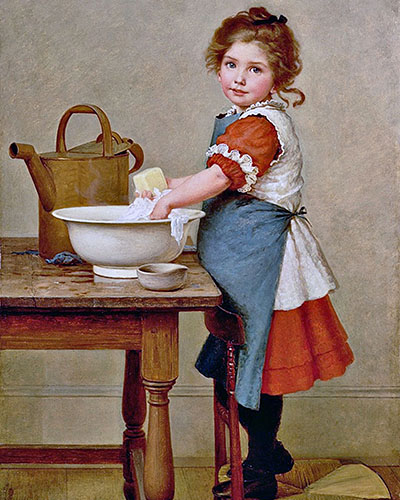An argument can be made that owning a physical Bible is perhaps the greatest earthly treasure one could possess. God has revealed Himself to us through His Word. It tells us of the gift of salvation. We can read for ourselves the message God has given to us through the ages of how to walk closely with Him. We’ve all seen the overwhelming joy and tears when Christians around the world receive a printed copy of the Bible in their own language for the first time. It is profoundly moving to watch. God’s written Word is incredibly valuable.
Over the past few years, I’ve grown troubled as it seems more and more Christians choose to use a digital Bible on their phone rather than a physical Bible. To be clear, I’m not making an argument that it’s wrong or sinful. In fact, it’s amazing that we can carry around God’s Word on our phone and read it whenever we like. But I wonder if it’s one more way we’ve embraced a technological convenience without thinking through what we’re giving up by leaving our physical Bible at home or even setting it aside all of the time.
In thinking about this a bit more, here are five reasons why I think Christians should primarily rely on and use a physical Bible every day. I also believe it’s important we model this for our children so that they, too, use a physical Bible every day.
A physical Bible becomes part of your life story.
When you use a physical Bible and make notations in it, it becomes a tangible record of your spiritual journey with Christ. How amazing is it to go back through your Bible and see all of the dates and notations you’ve made over decades? You can see where God answered a prayer or brought you to a specific verse or passage to meet a need. The act of making those notations in ink as part of your journey becomes part of your spiritual life story in a way that a digital Bible never will.
Reading a physical Bible helps you retain what you read.
As schools are discovering, reading real books helps with learning and retention in a way that digital books and screens do not. If this is true for learning in academic subjects, it is safe to assume the same idea carries over in studying your Bible.
How often when you want to read something to someone have you said, “I know it was near the top on the right side” as you look for it? There is something about the physical and visual working together that connects in our brain in a significant way.
Using a physical Bible is a rejection of The Great Reset.
“You’ll own nothing and you’ll be happy” is the mantra of those pushing The Great Reset. For decades we’ve been pushed to rent and lease everything. Ownership is depicted as a burden. Why is that? Because if you don’t own anything, you are always dependent on someone else. And if you are dependent on someone else, you are controlled.
You can be certain those pushing for The Great Reset would happily eliminate every copy of the Scriptures on the planet. Keep and use your physical Bibles as a reminder to reject the push to own nothing.
A physical Bible cannot be deleted.
You don’t “own” a digital Bible in the same way you own a physical one. Digital Bibles can be deleted at any time as can digital music and other digital books. Yes, a physical Bible can be lost or ruined. But it is not the same as a nameless and faceles outside source deciding to delete your digital Bible.
The unknown and unintended consequences
Lastly, it seems the longer I live, the more I see how changes that were heralded as great and important end up having significant downsides. I suspect we will discover this as well with the movement toward digital Bibles.
Maybe over time we will discover that depending on digital Bibles trivialized God’s Word? Made it less profound? I don’t know. I simply know that based on observing history, we always discover the negatives we missed at the beginning. We’re foolish to think we’re any better than those in the past when it comes to assessing long-term implications of our choices.
So pick up a physical copy of your Bible every day. Read it. Study it. Memorize it. Meditate on it.
And thank God that you have your own physical copy of His Word.













 In Our Cozy Home This Week – No. 103
In Our Cozy Home This Week – No. 103
Love this, Sallie. I agree with it all!!!! I thank God every day for His Word – and know how blessed I am to physically take it up, open it up, and read it, underlining verses, making notes, and hoping that when I die someone will see how much it meant to me and maybe will make them want to do the same (if they already don’t).
Hi Mary!
Thank you for the encouraging comment. I agree with your desire for others to see what was important to us after we are gone. We’re leaving a legacy.
Sallie
This is a great post to accompany what I wrote.
https://thelegacyofhome.blogspot.com/2022/10/setting-out-bibles-for-house.html
I have had this uneasy feeling about digital Bibles for a while. I think it would not only be easy to delete them at a whim, it would also be easy to change and twist the text. Honestly, with all of the other stuff going on on a person’s phone, how does anyone concentrate on the Bible if they read it there? The problem with getting older and having had poor eyesight for most of my life is I have to get a Bible with larger print every few years in order to keep reading the hard copy. I always keep my old copy handy for a while so I can compare, just in case some of these increasingly less Christian publishers try any funny business! I also make my notes on post it notes at first and let them “age”. Those that age well usually get written into the Bible, those that seem silly after a while don’t. I can’t have my grandchildren thinking I’m silly. lol